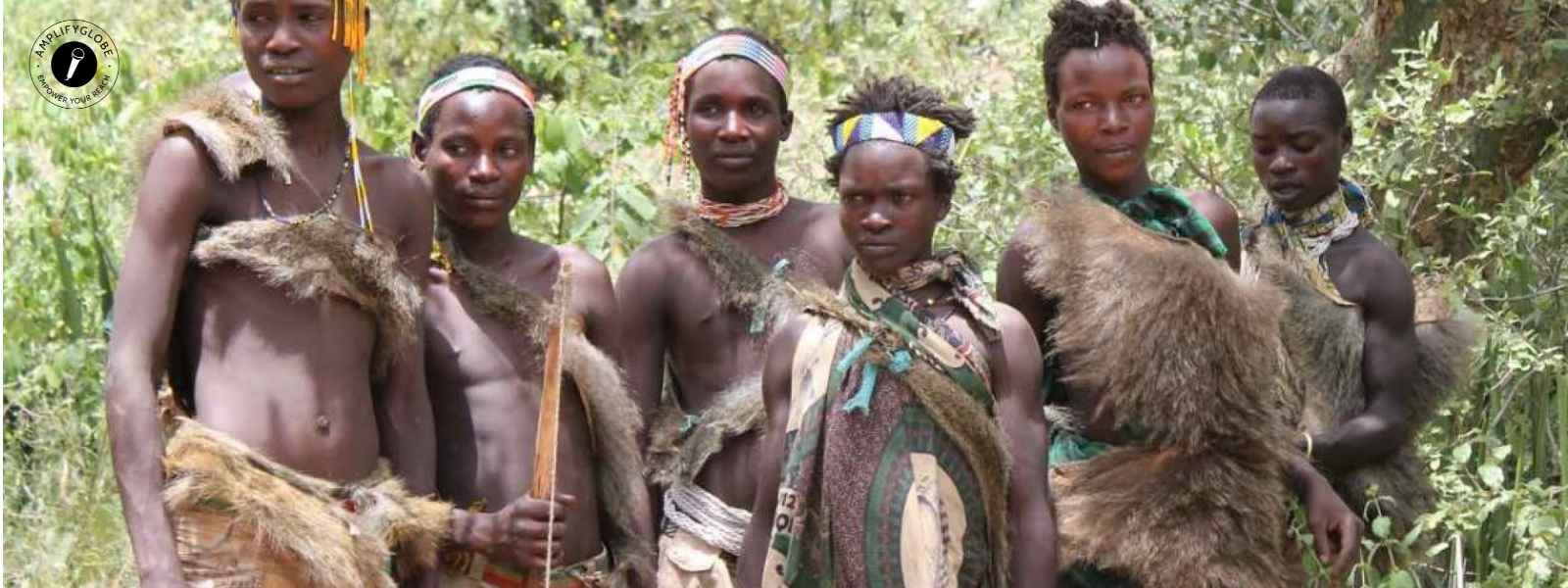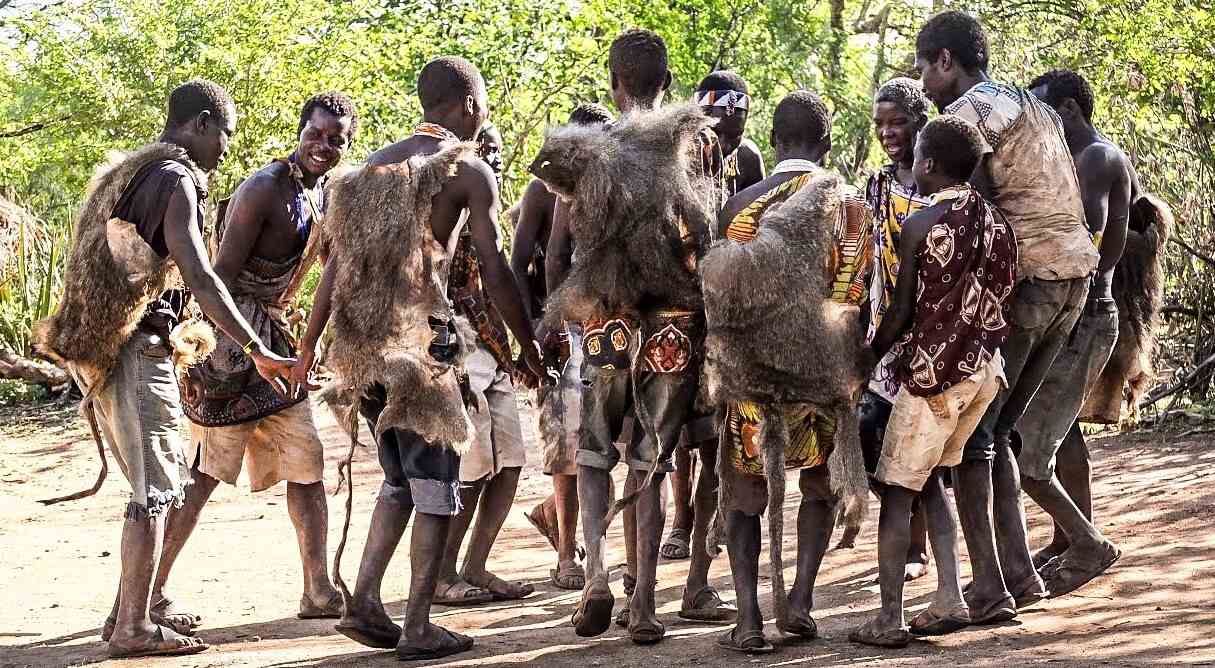The Hadza Tribe: Guardians of a Vanishing Way of Life
Deep in the heart of East Africa, nestled around the shores of Lake Eyasi in Tanzania, resides the Hadza tribe, one of the world's last remaining hunter-gatherer communities. With a history dating back tens of thousands of years, the Hadza people are living relics of a time when humans relied on their intimate knowledge of the land to survive. This extensive article explores the unique culture, lifestyle, and challenges faced by the Hadza tribe as they strive to maintain their traditional way of life in an ever-changing world.
Embrace the beauty of cultural diversity and enrich your understanding of the world! Learning about different cultures is an enriching journey that broadens our perspectives, fosters empathy, and fosters respect for one another. It allows us to appreciate the unique traditions, values, and customs that shape the identity of various communities around the globe. Learn about the Sami, the Akha People, the Aymaraes, the Kazakh People and the Adivasi on AmplifyGlobe.

A Glimpse into Hadza Culture
The Hadza are a small community of roughly 1,000 individuals who continue to practice a hunting and gathering lifestyle, primarily relying on the resources of the East African savannah. Their culture is characterized by its simplicity, egalitarianism, and a close connection to the natural world.
To gain a deeper understanding of this remarkable community, it is essential to delve into various aspects of their life:
Language and Identity:
The Hadza language is famous for its complexity, with a series of click consonants that make it unique in the region. Their language reflects their isolation from other East African tribes and contributes to their distinct cultural identity.
Nomadic Lifestyle:
Hadza families move frequently in search of food, setting up temporary camps known as "dunzi" made of wooden frames and thatch roofs. They are highly adaptable, shifting their locations based on the availability of resources.
Hunting and Gathering:
Hadza men are skilled hunters, using bows and arrows to capture game such as baboons, antelopes, and birds. Women, on the other hand, collect a wide variety of edible plants, honey, and tubers. Their diet is diverse, as they gather from over 300 plant species and hunt a variety of animals.
Social Structure and Egalitarianism:
The Hadza live in small, flexible social groups of 20-30 people. Their society is characterized by equality, with decisions often made through consensus rather than hierarchy. They do not practice any form of agriculture or animal husbandry, relying solely on their natural surroundings for sustenance.

Challenges to Hadza Traditions
While the Hadza people have survived for millennia in the Tanzanian bush, their traditional way of life is increasingly under threat due to a range of factors. These challenges have profound implications for their cultural continuity:
Land Encroachment:
As population growth and agricultural expansion in Tanzania continue, Hadza territory is gradually encroached upon. This disrupts their ability to move freely and access vital resources. Their once expansive domain is shrinking, endangering their nomadic lifestyle.
Government Policies:
The Tanzanian government has, at times, attempted to forcibly settle the Hadza people and introduce agriculture, infringing on their cultural rights. This government intervention has sparked resistance from the Hadza, who strive to maintain their autonomy and traditional practices.
Cultural Erosion:
Exposure to the modern world, Western values, and the pressure to adopt more mainstream lifestyles have led some Hadza individuals to abandon their traditional practices. The allure of modernity, with its conveniences and opportunities, has enticed some away from their ancestral ways.
Declining Game Population:
The decline in wildlife populations due to habitat destruction and poaching has made hunting more challenging, threatening the Hadza's primary source of protein. As game becomes scarcer, the Hadza face increasing difficulty in maintaining their traditional diet.
Preserving Hadza Culture
Despite these formidable challenges, efforts are being made to protect the Hadza's unique culture and way of life. By understanding these preservation efforts, we can appreciate the value of cultural diversity and the importance of supporting indigenous communities:
Land Rights Advocacy:
Organizations like the Dorobo Fund and Cultural Survival are actively working to secure land rights for the Hadza, enabling them to continue their nomadic lifestyle without outside interference. The recognition of their ancestral lands is crucial for their survival.
Cultural Exchange and Sustainable Tourism:
Responsible tourism and cultural exchange programs help raise awareness about the Hadza people and provide a source of income for their communities. These initiatives contribute to the preservation of their traditions and improve their economic well-being.
Education and Cultural Preservation:
Local and international organizations are working to provide Hadza children with access to education while respecting their cultural traditions. This delicate balance ensures that their traditional knowledge is passed down to future generations while offering opportunities for personal growth and development.
Wildlife Conservation and Sustainable Practices:
Collaborative efforts with conservation organizations promote sustainable practices among the Hadza, ensuring the protection of their natural resources and the wildlife they depend on for sustenance.
Healthcare Access and Medical Support:
Providing access to healthcare and medical support is essential for the well-being of the Hadza people. Combating diseases and improving overall health can strengthen their resilience in the face of modern challenges.
Empowerment and Advocacy:
Empowering the Hadza to advocate for their rights on local, national, and international stages is crucial. By amplifying their voices, they can assert their rights and protect their unique cultural heritage.
Conclusion
The Hadza tribe represents a window into our collective human past, a living testament to the enduring spirit of hunter-gatherer societies. Their remarkable culture, language, and way of life provide invaluable insights into our shared history and the complexities of modernity's encroachment on traditional lifestyles. By supporting their land rights, cultural preservation, and sustainable development, we can help ensure that the Hadza people continue to thrive while preserving their heritage for generations to come.
The challenges they face are daunting, but with concerted efforts and a commitment to preserving cultural diversity and the rights of indigenous peoples, we can ensure that the Hadza tribe endures as guardians of a vanishing way of life. In doing so, we contribute not only to their well-being but also to the rich tapestry of human heritage that is woven with the threads of their unique culture.